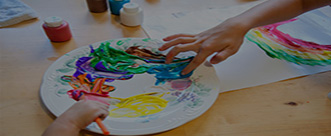Physical disability refers to a large group of students who thought quite different from each other, share common challenge of mobility limitations.
Cerebral Palsy
Caused by prenatal, perinatal, or postnatal.
Spina Bifida
It caused by an instruction of environmental and genetic factor.
Other health impairment is chronic or acute health problems that result in limitations of strength, vitality or alertness and adversely affect a student’s educational performance. It includes
-
Epilepsy
-
Asthma
Our qualified staff is trained in working with children who have physical disability and other health impairment.





